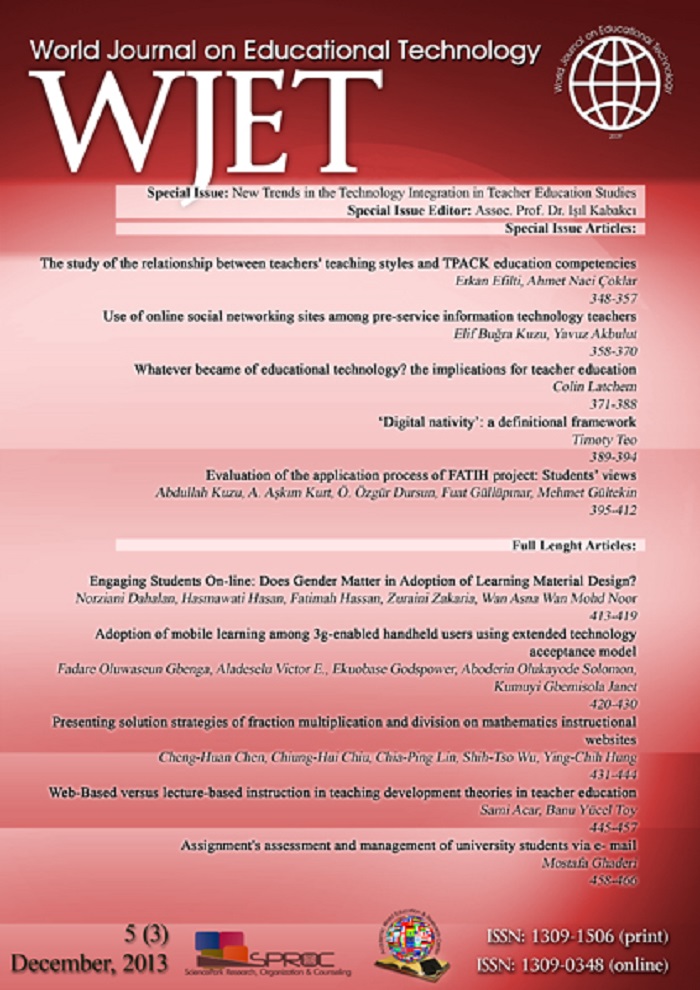Evaluation of the application process of FATIH project: Students’ views
Evaluation of the application process of FATIH project: Students’ views
Author(s): Abdullah Kuzu, A. Aşkım Kurt, Özgür Dursun, Fuat Güllüpınar, Mehmet Celal GültekinSubject(s): Education, ICT Information and Communications Technologies
Published by: Birlesik Dunya Yenilik Arastirma ve Yayincilik Merkezi
Keywords: Interactive whiteboards in classroom; technology integration into education; FATİH Project; project evaluation; students’ views;
Summary/Abstract: The purpose of this study was to find out the students’ views about the innovations brought about by FATIH Project. The research data were collected via field notes, in-class observations made in 10 class hours and focus group interviews held with 45 students participating in the study on voluntary basis from five state schools located in the cities of Ankara, Karaman, Mersin (2) and Uşak. Within the scope of the study the data were analyzed with the content analysis method. It was found out the innovations brought about by FATIH Project led to positive changes in students’ interest and willingness in classes,their achievement levels, their motivations, their pace of learning, their technology use and research skills, permanency in their learning and their self-confidence. The students reported that the negative changes included distraction of students’ attention to classes, limitation in face-to-face communication with the teacher, the slowing pace of teaching, time-taking classes, confidence problems, the teacher’s increasing desire to control students and difficulty in class-management.It was also revealed that use of tablets for a long time resulted in eye diseases and headaches and that the project helped the students instantly reach the information they needed, contributed to their motivation in learning yet had negative influence on their socialization. It was found that the students felt themselves privileged as they were involved in the project; that they were pleased as the classes were taught in a more entertaining manner; and that inefficient content and interaction problems between the interactive whiteboard and tablet computers were considered to be negative consequences of the innovations brought about by the project.
Journal: World Journal on Educational Technology: Current Issues
- Issue Year: 5/2013
- Issue No: 3
- Page Range: 395-412
- Page Count: 18
- Language: English

